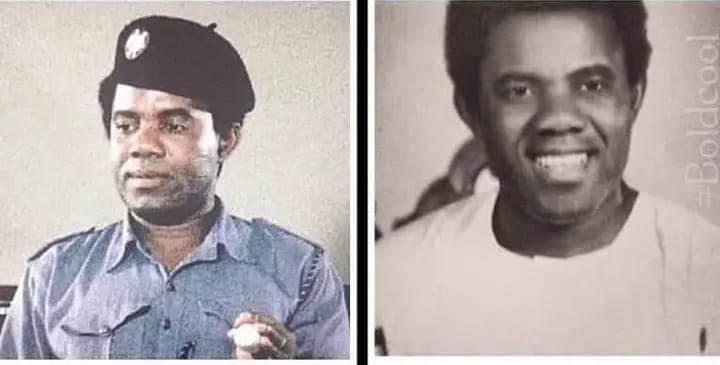Damilola Timilehin, Ibadan
Adeyemi Josiah Afolayan was a film actor, director, and producer who was born in 1940 in the Nigerian state of Kwara. He is the brother of the actress Toyin Afolayan and the father of the actors Kunle Afolayan, Tayo Afolayan, Gabriel Afolayan, Moji Afolayan, and Aremu Afolayan.
Afolayan joined Moses Olaiya’s theatrical group in 1966; he later departed to form his own drama company, which produced comedy pieces in 1971. He first made an appearance in Ola Balogun’s 1976 film Ajani Ogun, and later produced and featured in Balogun’s 1979 film Ija Ominira. The first film he created, produced, and starred in as a principal actor was Kadara, which is also known as Destiny in English. At the ninth Tashkent film festival for Asian and African cinema, the movie was screened. Later, Afolayan produced and had starring roles in additional productions like Ija Orogun, Taxi Driver, and Iya ni Wura.
Afolayan had undoubtedly greater ties to the culture whose traditions were set to change. In the middle of the 1990s, he attempted to make a home video movie with the symbolically charged title B’aye Ti Gba (Moving with the Times), but I doubt it ever made it to the National Theater since he wasn’t really into it. His career peaked in the 1980s with movies like Taxi Driver and Ija Orogun, in particular.
Ade love is physically appealing, gifted, diligent, and tough-minded, Afolayan got his big break in 1977 with the Ola Balogun-directed movie Ajani Ogun. It was possibly the first Nigerian movie to find commercial success. Balogun said that the extraordinary response of Nigerian Yoruba audiences, who flooded theaters at the sight of something completely new, was responsible for the success when he was interviewed for Ferid Boughedir’s Camera d’Afrique, a 1987 documentary about the evolution of African film. Compared to a live theater performance, movies provide more visually stunning entertainment. It gave performances a magical air, and to eyes focused on the rectangular perspective of the television, it seemed larger than life.
Adeyemi Josiah Afolayan passed away in 1996.
FILMOGRAPHY
• Kadara (1980)
• Ija Orogun (1982)
• Taxi Driver (1983)
• Iya ni Wura (1984)
• Taxi Driver 2 (1986)
• Mosebolatan (1986)
• Ori Olori (1989)
• Eyin Oku (1992)
Daddy you’re such an inspiration to many of us till today. You’re a legend who has left an unforgettable footprint 👣 in the film industry that will forever be remembered.
Daddy, you’re a quintessential film writer, director, coach, and trainer. I‘m celebrating you today as one of the greatest of all time in thee film 🎬 industry who distinguishes himself as a role model.
Sleep well , Daddy Ade Love. Your children are successful, they’re doing amazing jobs, and above all winning a Nation merit award by the Nigeria Federal government which proves you as an outstanding successful man to date.
